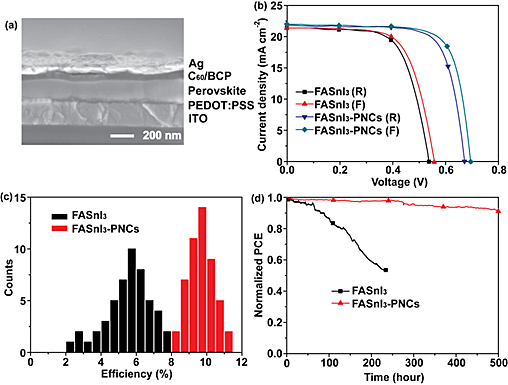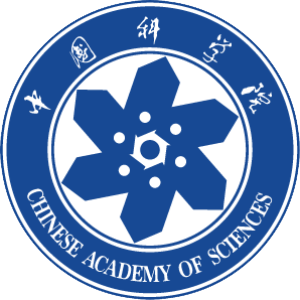Organic-inorganic hybrid perovskite materials have received extensive attention in the field of photovoltaics. However, the toxicity of lead-based perovskites has brought certain limitations to their applications. The development of non-toxic or low-toxicity non-lead perovskite solar cells is very important. necessary. Among them, tin-based perovskite material has ideal band gap and high carrier mobility, and is a low-toxicity photovoltaic material. At present, the efficiency of lead-free tin-based perovskite solar cells has reached more than 10%, proving that tin-based perovskites have great potential in photovoltaic applications. However, tin-based perovskite has the disadvantages of easy oxidation and more vacancy defects, and the crystallization rate of tin-based perovskite is relatively fast, resulting in many film defects, which limits the further improvement of the efficiency of tin-based perovskite solar cells.

Recently, Prof. Meng Xiangyue and Prof. Huang Hui from the University of Chinese Academy of Sciences, Prof. Hu Jinsong from the Institute of Chemistry, Chinese Academy of Sciences, and Prof. Yang Shihe from Peking University cooperated to study tin halide perovskites. According to the basic kinetics of perovskite crystallization process and thermodynamic theory, a novel nucleation theory based on pre-nucleated clusters (PNCs) was proposed to construct high-quality tin halide perovskite solar cell devices. The colloidal chemistry of the perovskite precursor solution is tuned by adding the additive PDI2 to the FASnI3 perovskite precursor solution, and stable clusters have been formed in the pre-nucleation perovskite precursor solution. These pre-nucleation clusters As an intermediate phase, it plays a role in lowering the nucleation energy barrier, making the nucleation process of perovskite films faster and easier, resulting in high-quality tin-based perovskite films with low defect density. The prepared solar cell device has an efficiency of 11.39% and good light stability.

In this work, by deeply understanding and precisely controlling the crystallization process of tin-based perovskite thin films, a novel nucleation theory based on pre-nucleated clusters is proposed, which has important implications for the crystallinity, morphology, and optoelectronic properties of FASnI3 perovskites. important regulatory role. This non-classical nucleation theory based on pre-nucleated clusters has important implications for the understanding of the crystallization process of perovskite thin film materials.
This result was recently published in Angewandte Chemie International Edition, and Professor Meng Xiangyue is the first author and corresponding author of the article.
Original text (scan or press and hold the QR code, after identification, you can go directly to the original page, or click here to view the original text):

Crystallization Kinetics Modulation of FASnI3 Films with Pre-nucleation Clusters for Efficient Lead-free Perovskite Solar Cells
Xiangyue Meng,* Yunfei Li, Yizhi Qu, Haining Chen, Nan Jiang, Minghua Li, Ding-Jiang Xue, Jin-Song Hu,* Hui Huang,* Shihe Yang*
Angew. Chem. Int. Ed., 2020, DOI: 10.1002/anie.202012280
